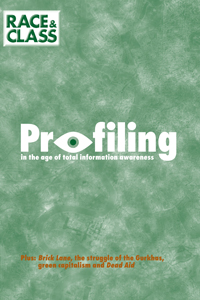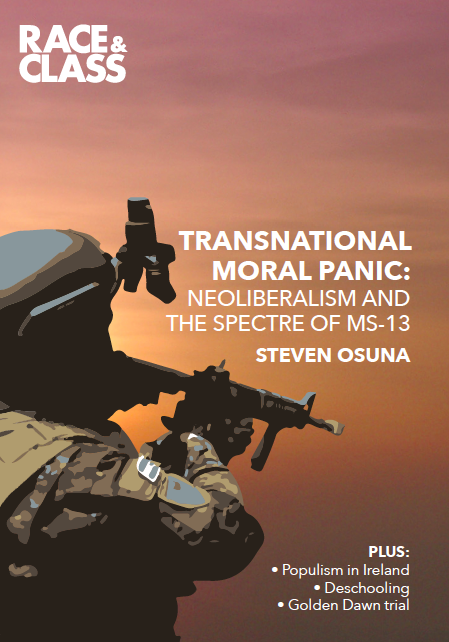Description
Surveying the contemporary Caribbean – economically, politically and culturally – this special edition of the journal Race & Class argues that slavery and colonialism have left the region in the hands of narrow elites, which consider large sections of their own populations to be ‘disposable’.
‘Caribbean Trajectories: 200 years on’ attempts to resuscitate the Caribbean’s tradition of radical political critique for a generation coming of age amidst spiralling inequalities and violence. Following in the footsteps of the systematic and sharp critiques launched from the 1960s through the 1980s by movements like the New World Group, Workers’ Party of Jamaica, Working People’s Alliance of Guyana and Tapia, the contributors embrace a spirit of diagnosis and contestation. With longer articles and interviews as well as commentaries on various aspects of the Caribbean experience, this volume shows how the young, women, the indigenous and the poor are made into non-citizens of their own countries.
Guest edited by AARON KAMUGISHA and ALISSA TROTZ.
Development, change and society: an interview with Kari Levitt – DAVID AUSTIN
In this wide-ranging interview, the renowned development economist Kari Polanyi Levitt reflects on the nature of social transformation in the English-speaking Caribbean and the cultural conditions that would facilitate it.
The coloniality of citizenship in the contemporary Anglophone Caribbean – AARON KAMUGISHA
A common theme to the political crisis of the contemporary Anglophone Caribbean is the denial of full citizenship to many persons in the nation state – not primarily in a legal sense but in the variety of practices, tropes of belonging and identity concerns that frustrate and deny the aspirations of many Caribbean people.
Between the devil and the deep blue sea: mercantilism and free trade – CECILIA A GREEN
Taking the work of radical dependency theorist Clive Thomas as its starting point, this article examines the structural effects on Caribbean economies of capitalist globalisation, neoliberal ‘adjustment’ programmes and the imposition of ‘free market’ rules of trade.
Guyanese Amerinidan epistemology: the gift from a pacifist insurgence – GEORGE MENTORE
Amerindian modes of knowledge are intellectual strategies for defeating racism in Guyana. Coming to terms with radically different concepts of time and space provides the means for understanding viable alternatives of social being.
The politics of hope in Guyana – ALISSA TROTZ
Reflecting on the work of the Red Thread Women’s Development Organisation in Guyana, which has over two decades’ worth of experience in grassroots organising, the author explores what autonomy and connection might mean for poor women.
The war on human trafficking – KEMALA KEMPADOO
Encouraged by the US, the Caribbean is being drawn into a global panic over human trafficking, leading to greater policing and surveillance of migrant women and the sex trade.
CSME, HIV and AIDS – ROBERT CARR and R ANTHONY LEWIS
The trends now emerging in the Caribbean Single Market may reinforce the structural vulnerabilities that act as the drivers of HIV and AIDS.
Multiracialism – SARA ABRAHAM
How can we define a multiracial unity. And what does it mean in practice?
Haiti and America Latina – KEVIN PINA
The Bush administration’s forced removal of democratically-elected Haitian president Jean-Bertrand Aristide, while a power-sharing deal with his political opposition was being brokered in 2004, resulted in the rape, torture and false imprisonment of thousands of Haitians.
Small farming – TONY WEIS
Forged and still scarred by slavery, Caribbean agricultural landscapes are now being made redundant in an era of global market integration.
A Caribbean common law – TRACY ROBINSON
The recent establishment of a Caribbean Court of Justice prompts reflection on the nature of a regional identity around a shared legal system and the concept of ‘West Indian law’, describing the forces underlying these processes and their contradictions.
Youth in Trinidad and Tobago – GABRIELLE JAMELA HOSEIN
Youth activists in Trinidad are primarily focused on sexual and reproductive health issues but do not generally address issues to do with women’s rights and equity, while feminist organisations focus on personal issues and do not make links with the wider political context.
Race & Class is published quarterly, in January, April, July and October, by Sage Publications for the Institute of Race Relations; individual subscriptions are £27/$47, for four issues, with an introductory rate of £20/$35 for new subscribers.



